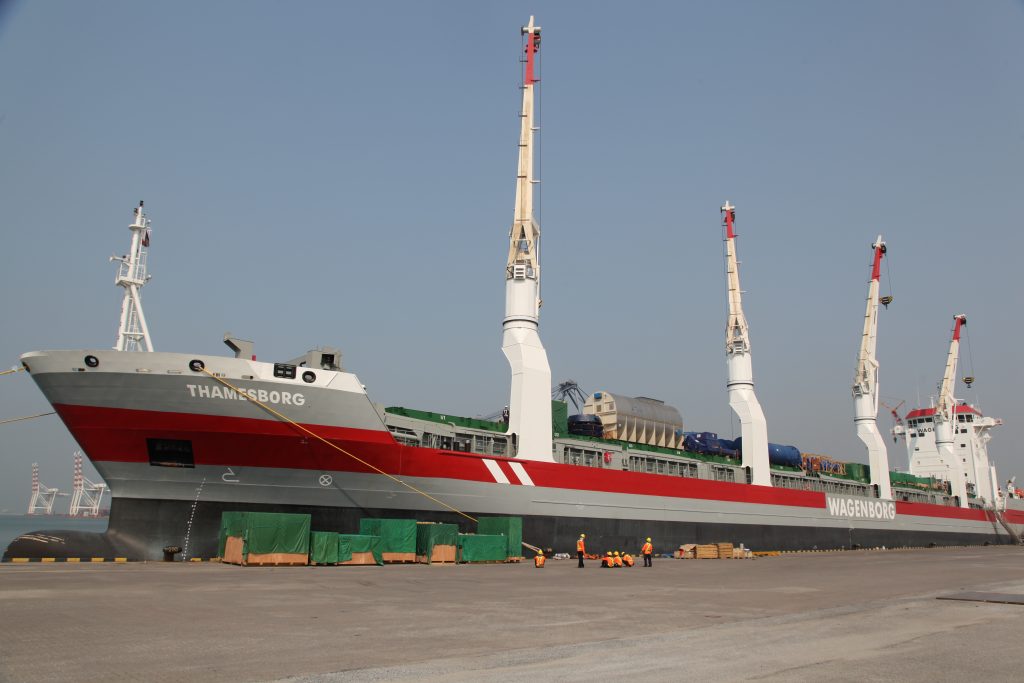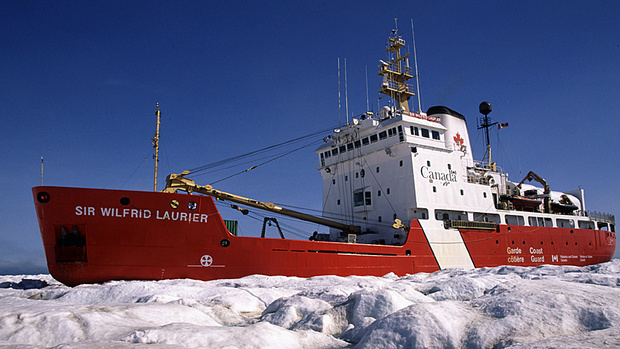2nd Coast Guard icebreaker reaches grounded cargo ship in Arctic Canada; salvage experts to be sent

Salvage experts are being sent to the Canadian Arctic where the cargo ship Thamesborg grounded this weekend, Royal Wagenborg, a maritime logistics company and operator of the vessel, said on Monday.
Wagenborg told Eye on the Arctic it could not yet confirm the exact date but said “salvage experts are to arrive on site to attend to the general cargo vessel Thamesborg, which unexpectedly ran aground off Prince of Wales Island, Nunavut, Canada.”
The ship grounded on Sept. 6 while transiting Franklin Strait in Canada’s Arctic archipelago. The strait runs along the southeast side of Prince of Wales Island between Peel Sound to the north and James Ross Strait to the south.
The waterway is one of the routes used by ships transiting the Northwest Passage.
And while the ship was impacted, the Canadian Coast Guard said the crew was unharmed and there was no environmental damage.
“The vessel has flooded in multiple ballast tanks, though there is no flooding in any of its fuel tanks or its cargo hold,” a Coast Guard spokesperson said on Monday.
Wagenborg confirmed the ship’s crew identified hull and ballast tank damage but that the vessel is “stable and aground.”
Second Canadian Coast Guard vessel on site
The CCGS Sir Wilfrid Laurier icebreaker was dispatched to the scene after the accident.

“It is assessing the situation with its fast rescue craft and helicopter, and is in close contact with the MV Thamesborg,” the Coast Guard said.
A second icebreaker, the CCGS Jean Goodwill, arrived in Franklin Strait on Monday to assist.
- Type: General cargo vessel
- Operator: Royal Wagenborg
- Flag: Netherlands
- Built: 2012
- Length: 172.28 metres
- Width: 21.49 metres
Source: Royal Wagenborg
The Thamesborg is an ice-class ship that was traveling from Asia to Baie-Comeau, Quebec with carbon block cargo — a solid, processed carbon used in heavy industry, including steel production and aluminum smelting.
Ice-class vessels are ships reinforced to handle northern waters. There are several grades of ice classification. The Thamesborg is listed as having a 1A rating under Finnish-Swedish classification rules that means its hull is reinforced to operate in heavy first-year ice.
“The exact cause of the incident is yet unknown with a full investigation into the exact circumstances leading to the grounding to follow,” the company said.
Under Canadian law, vessel owners must cover the costs of their own incidents, including cleanup, repairs, and any other remediation.
Comments, tips or story ideas? Contact Eilís at eilis.quinn(at)cbc.ca
Related stories from around the North:
Canada: Canada’s Davie sees US shipyards as key to winning icebreaker contract, Reuters
Norway: Hybrid-powered electric cruise ship navigates Northwest Passage, CBC News
Russia: Beijing and Moscow tune in for more Arctic shipping, The Independent Barents Observer
United States: U.S. Coast Guard monitors Chinese ships in Arctic waters…again, Eye on the Arctic




sept 9th 2025
DID THE DUTCH SHIP HAVE A CANADIAN ” ICE PILOT” ON BOARD ????????